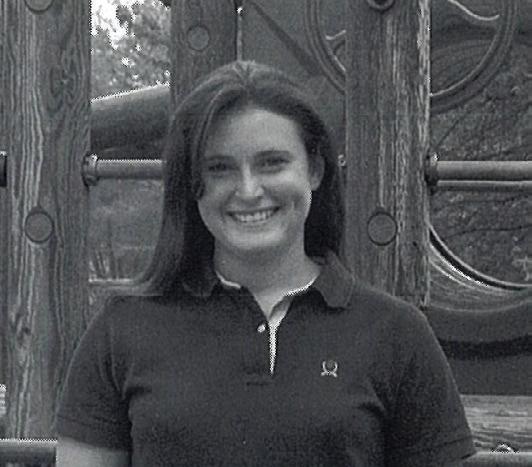
3 minute read
MOLLY VOLLMAN MAKRIS ’95
Lincoln Gries Distinguished Alumni Award
Molly
Advertisement
Vollman Makris
Ph.D. is a professor of Urban Studies at Guttman, a small innovative community college within the City University of New York. Molly began her career as a social studies teacher in a New York City public high school, later working for a nonprofit youth development organization before moving to academia. Molly’s first book Public Housing and School Choice in a Gentrified City: Youth Experiences of Uneven Opportunity won the American Educational Studies Association Critics’ Choice Book Award and the New Jersey Studies Academic Alliance Book Award in 2016. Her recent co-authored book, Gentrification Down the Shore, was published in 2020.
Tell us a little bit about your life since graduating from Old Trail. How did Old Trail School impact you as a student and as an individual?
When I transferred to Old Trail halfway through my first-grade year, I was struggling to read and painfully shy. My teachers at Old Trail (like Mrs. Thompson, Palumbo, Newhouse, Williams and Hoffert and Mr. Heaps, Pintola and Yannerilla), the administrators (Mr. Duff), and the swimming and performing arts opportunities at Old Trail made me more self-confident and helped me to see myself as a scholar. The social studies teachers (Mrs. Brookhart, Standen, and Goodwin) ignited a deep love for learning, but most importantly, taught us critical thinking and unvarnished messy history. The teaching at Old Trail inspired inquiry and instilled a profound sense of social justice. In eighth grade I was part of a National History Day team that researched the Kent State shootings. This was a rigorous original research, writing and presentation experience that I truly believe prepared me for my Ph.D. dissertation and defense down the road!
I think about my experiences at Old Trail on an almost daily basis. In my work in the college classroom, with largely first-generation college students, I strive to provide experiential learning opportunities like those I experienced at Old Trail. In my writing, I hope to advocate for all children to have the kind of intellectually inspiring, creative school experiences I was so privileged to enjoy.
One area of your research focuses on urban education reform. How would you describe this work and why are you so drawn to it?
After I graduated from college at NYU, I became a high school teacher. While being inspired by my students, I was quickly exposed to the extreme inequities and segregation within the NYC public school system. During this time, there was a lot of reform being pushed into public schools—No Child Left Behind, the proliferation of charter schools and the growth of alternate route teacher education programs.
I became interested in these reform efforts and the entrenched segregation and resource inequities in the schools. This led me to pursue a master’s and Ph.D., during which I became drawn to how parents navigate school choice and the implications of these choices for educational equity, particularly in neighborhoods that were becoming more racially and socio-economically diverse through gentrification.
Cleveland and Akron have both experienced areas of gentrification, particularly parts of Cleveland. What complex issues arise when neighborhoods begin to be transformed?
As a researcher with an equity lens, my number one concern is displacement and the protection of the most vulnerable in a community when it begins to change. Without proactive policy, a community that experiences gentrification will lose longtime residents, local culture and community, small businesses, affordability and political capital. I am particularly interested in what happens to youth and to the schools when a neighborhood changes. That being said, gentrification looks very different in the East Coast cities I have studied than it would in Northeast Ohio. Longtime residents in many urban areas across the country will tell you that there is a need for transformation and economic growth and development, improved safety and education and better amenities; they just know it shouldn’t take gentrification’s demographic shift for these kinds of improvements to occur. This is where, I argue, good public policy can make a difference.
The Lincoln Gries Distinguished Alumni Award is presented to an Old Trail alumnus who has made an important contribution or given extraordinary service to others in some field, as a professional or as a volunteer. It is named after Lincoln Gries, a former parent, board member and board chair who provided exemplary service to Old Trail School. Nominees must have attended OTS, contributed to their community and/or to the betterment of others, earned the respect of both Old Trail alumni and future Old Trail students, and shown a continued loyalty to Old Trail School.










